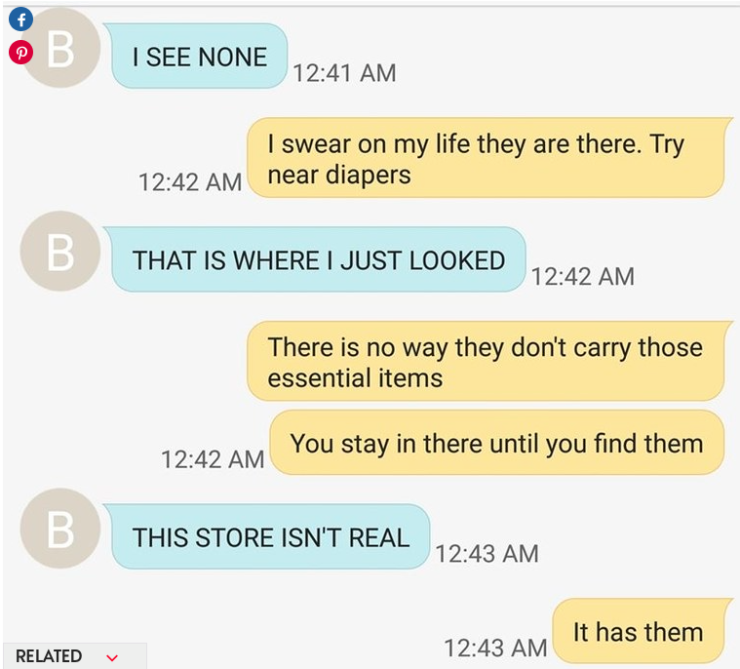 This fall, the plethora of menstrual-related news articles and social media trends is proving that we are well into what some may call a menstrual talk revolution. Menstrual discourse is no longer taking place in hushed tones behind closed doors. People are talking about menstruation in public spaces, on social media platforms and within classrooms and policy reform circles. Whether it be a candid text conversation between a mother and daughter, menstrual themed haikus, or Amy Schumer’s shoutout to her tampon on the red carpet, menstrual talk is happening!
This fall, the plethora of menstrual-related news articles and social media trends is proving that we are well into what some may call a menstrual talk revolution. Menstrual discourse is no longer taking place in hushed tones behind closed doors. People are talking about menstruation in public spaces, on social media platforms and within classrooms and policy reform circles. Whether it be a candid text conversation between a mother and daughter, menstrual themed haikus, or Amy Schumer’s shoutout to her tampon on the red carpet, menstrual talk is happening!
And what is even more exciting is that key players in the conversation are men. In an honest letter to future dads (and himself) one college student does some “man-splaining to men about periods.” Henry Solotaroff-Webber challenge his male peers to recognize their bias, understand that menstruation is not just about gender, but class and race and encourages readers to vote for policy and leaders that support women’s health and access to feminine hygiene products.
Early in September, the hashtag #IfMenHadPeriods created a lot of noise on social media, setting the stage for honest conversations about menstruation and sexism. While the hashtag was successful in trending, it excluded an important fact: men also menstruate. The trans community took the opportunity to use the campaign to encourage inclusive speak such as persons who menstruate or menstruators.
In addition to men joining the conversation, women are using social media as a platform to share their menstrual related stories in an effort to draw awareness to much needed women’s health concerns, such as PCOS. Tina-Marie Beznec posted photos of her shaving her face to educate people about what it means to live with PCOS. Beznec hopes that by sharing her story people will better understand the disease and seek medical support if they experience similar symptoms.
At the core of many of these conversations is education. The more we say, the more we learn, and the more advocacy we will see. And what better setting to explore menstrual education, than the classroom?
What began as a class project at Rhode Island School of Design, is now a prototype for what could be one of the most important board games for adolescents and sexual health education. The Period Game, created by, Daniela Gilsanz and Ryan Murphy, is an educational exploration of the menstrual cycle. The game teaches players about what happens in each phase of the menstrual cycle as well as identifies key terms and definitions. Gilsanz and Murphy are currently seeking partnership for full distribution of the game.
The results are in: hormones do have an influence on mental capabilities, but not, as some might expect, in a negative way. New research from Concordia University finds that women use different problem-solving skills depending on which phase of the menstrual cycle they are experiencing. Forty-five women were profiled and monitored to better understand how, and in what way, hormones influence decision making. As reported by NDTV: “The result shows that women who were ovulating performed better on the verbal memory task. On the other hand, women tested in their pre-menstrual phase were better at solving spatial navigation tasks.”
The study helps support previous research which found that because women use different strategies to problem solve when competing interests are at play, they make better corporate leaders. While research such as this may help organizations to better understand their employees, will it have an influence on promotion or equal pay? Sounds like a new menstrual topic is open for discussion.
When she is not writing and researching about the menstrual cycle and woman’s health for Diva International Inc., you will find Sophie Zivku trying out new recipes, reading, attempting to knit and spending time with her ever-growing family in Ontario, Canada.


So cool!
I agree that it seems like menstruation is being talked about more and more, and that it is becoming less of a taboo and more of a casual conversation topic. Thank god!
I really feel that the more people continue to talk about and share their experiences on menstruation, the more it will be normalized, and hopefully young women will enter into menarche without shame.
I’ve been sharing stories of my blood time on my blog and just recently published a post on reclaiming a natural cycle after coming off of pharmaceutical birth control pills. https://lunarmandalacalendar.com/2016/10/30/into-the-depths/
Thank you for sharing this article! It’s uplifting!